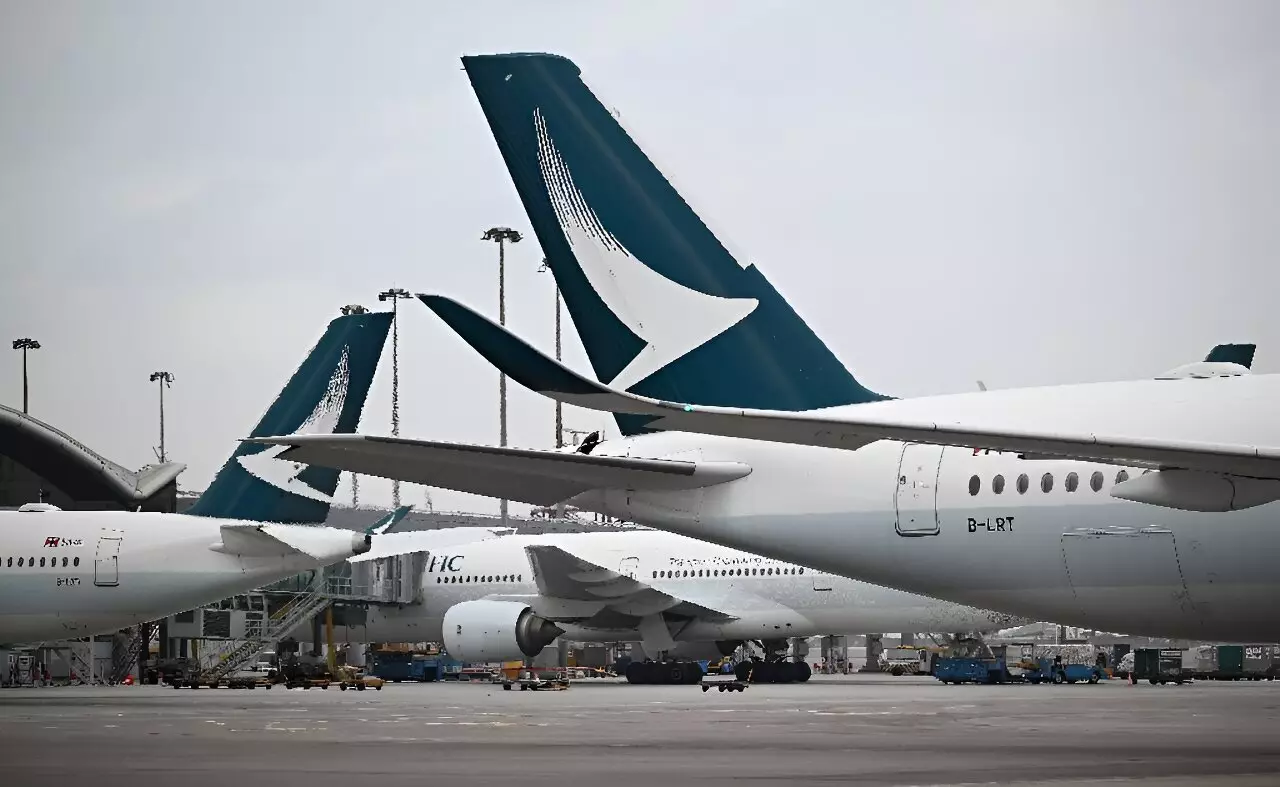Cathay Pacific, a major operator of Airbus A350 planes, experienced a setback this week when 48 of its aircraft had to be grounded for checks due to defective engine fuel lines. The airline took immediate action by replacing the faulty components, with 15 of the A350s requiring repairs.
After successfully repairing six of the affected aircraft, Cathay Pacific announced that the remaining nine planes would also undergo repairs and are expected to resume full operation by Saturday. This incident caused the airline to cancel 90 flights between Monday and Saturday, affecting mainly regional routes.
Passengers expressed concerns about the safety of Cathay Pacific’s A350 planes, with one traveler mentioning the lack of communication from the airline regarding the status of the checks. Other airlines in the region, such as Japan Airlines and Thai Airways, also conducted inspections on their A350 jets to ensure the safety of their operations.
While Cathay Pacific dealt with the engine issues, other airlines worldwide, including Air France, Qatar Airways, and Singapore Airlines, monitored the situation closely. Manufacturers Airbus and Rolls-Royce cooperated with Cathay Pacific during the investigation process, emphasizing the importance of addressing mechanical issues promptly.
Aviation experts highlighted the seriousness of defective engine lines affecting fuel flow, emphasizing the critical nature of resolving such issues promptly. The incident served as a reminder of the challenges faced by airlines operating long-haul flights that require reliable and durable aircraft.
The aviation industry faces ongoing challenges in ensuring the durability and longevity of aircraft engines, as seen in previous disputes and incidents involving A350 planes. Manufacturers like Rolls-Royce are constantly working to enhance the durability and performance of their engines to maintain the safety and reliability of modern aircraft.
Cathay Pacific’s response to the Airbus A350 engine issues highlights the importance of proactive maintenance and swift resolution of mechanical defects in the aviation industry. By addressing such challenges promptly and effectively, airlines can ensure the safety and reliability of their operations, providing passengers with confidence in air travel.


Leave a Reply